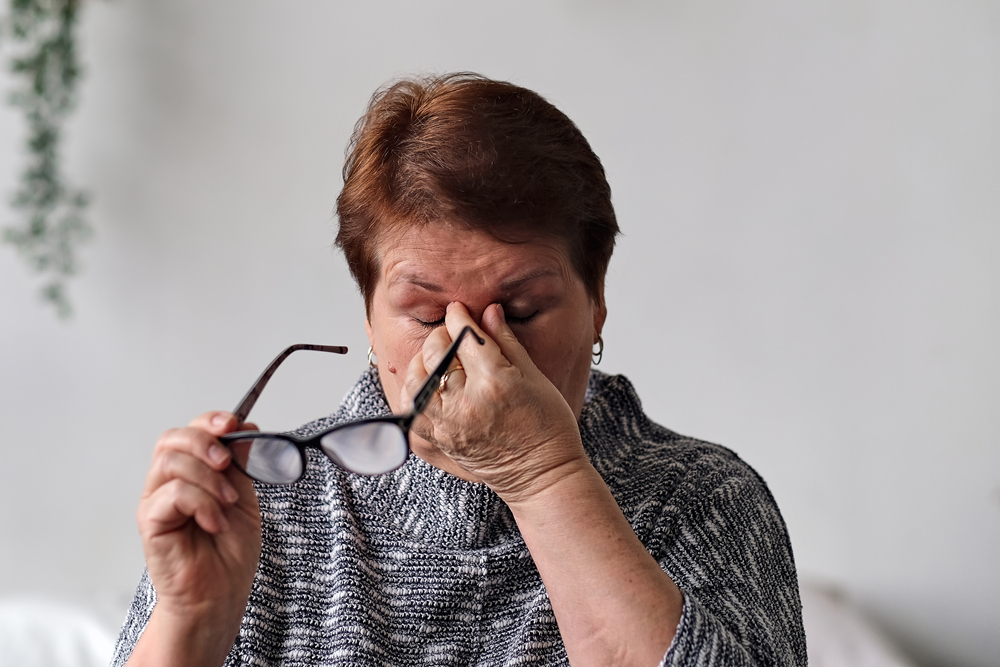
Dry eye disease affects millions of people worldwide. It occurs when there is insufficient production of tears or when tears evaporate too quickly, leading to irritation, discomfort, and inflammation in the eyes. Different factors contribute to dry eye disease. Understanding its causes is crucial for effective management and treatment.
Aging
The natural aging process can contribute to aging. As you age, tear production by the lacrimal glands tends to decrease. The decrease can lead to dryness and discomfort in your eyes. Additionally, your tear composition may deteriorate as you get older, impairing its effectiveness.
Environmental Factors
Exposure to dry or windy climates, air conditioning, and heating systems can increase tear evaporation, causing dryness. Spending long hours in front of digital screens or poorly-lit environments can also contribute to eye irritation and dryness.
Focusing on digital screens can lead to an increased chance of dryness and eyestrain due to a low blinking frequency. Taking regular breaks and ensuring proper lighting and ergonomics can help. It can alleviate dry eye symptoms associated with digital device use.
Medications
Some medications can cause or exacerbate dry eye symptoms. These can include antihistamines, antidepressants, or decongestants. Blood pressure medications and hormonal treatments can also cause dry eye disease. Consult your healthcare provider if you are experiencing dry eye symptoms and taking any of these medications. They can give you alternative options or additional treatments.
Medical Conditions
Various medical conditions can contribute to the development of dry eye disease. Autoimmune disorders, like rheumatoid arthritis and lupus, can affect the functioning of your lacrimal glands. This can lead to reduced tear production.
Hormonal imbalances, like menopause, can lead to dry eyes due to tear composition changes. Vitamin A deficiency, thyroid disorders, and diabetes can also contribute to dry eye symptoms.
Eye Surgery
Some eye surgeries, like LASIK or PRK, can cause temporary or long-term dry eye symptoms. The corneal nerves that trigger tear production may get impaired during these procedures, leading to reduced tear production and dryness. Discuss potential risks and side effects with your eye surgeon before any surgical procedure.
Contact Lens Wear
Wearing contact lenses can contribute to dry eye symptoms, especially if you do not maintain proper lens care and hygiene. Contact lenses can interfere with your natural tear film. They can lead to increased tear evaporation and dryness.
Follow the recommended wearing schedule. Clean your lenses regularly, and use lubricating eye drops as your eye professional advises. Doing so will help minimize the chances of developing dry eye symptoms.
Allergies
Allergic reactions can trigger dry eye symptoms in some individuals. Seasonal allergies or exposure to allergens, such as pollen, pet dander, or dust mites, can cause eye irritation. It can also cause eye inflammation and lead to dryness. The release of histamines during an allergic reaction can affect tear production and quality, exacerbating dry eye symptoms.
Managing allergies with antihistamines, avoiding allergens when possible, and using artificial tears or prescribed medications can help. It can alleviate dry eye symptoms associated with allergies.
Eyelid Disorders
Some eyelid disorders can contribute to dry eye disease. Conditions like blepharitis and meibomian gland dysfunction can disrupt the normal functioning of the tear film. Treating and managing eyelid disorders through proper eyelid hygiene and warm compresses can help alleviate dry eye symptoms.
For more on what causes dry eye disease, visit Nolo Eye Care + Eyewear Gallery at our office in Nolensville, Tennessee. Call (615) 283-7321 to book an appointment today.








